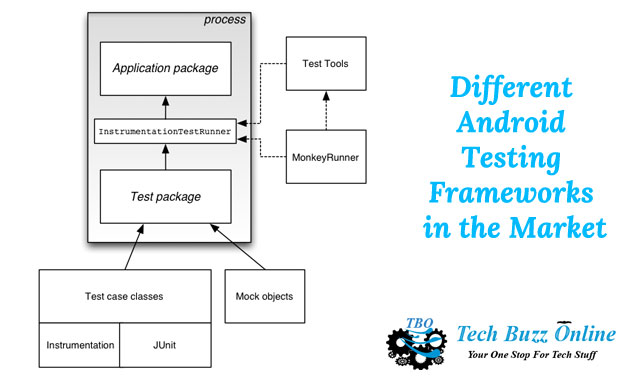
Google Play has become one of the most popular distribution channels for app developers coming up with their latest offerings, either in the form of apps, games or services. This dynamic marketplace provides a global gateway for developers to reach out to users using hundreds of different Android devices. The variety in Android OS version is rapidly changing hence fragmentation exists.
An Android testing framework is a platform for developers to test their applications at various levels and steps. The tests give a clearance that an application can run well.
The Android testing framework plays a very critical role in the development environment. It provides excellent tools that help developers test every single aspect of their application at various levels ranging from unit to framework. There are different test automation frameworks for Android available in the market. The most widely accepted is Google’s Robotium. It is based on Java and JUnit.
For integration or app level test automation, Robotium is an excellent tool. It supports both native and hybrid applications. With Robotium, developers can write function, system and other test scenarios across multiple Android activities. It tests the source code as well as the applications and handles several Android activities automatically. One does not require a licence or any other permission to run tests. Robotium supports full automation that means, it can automatically navigate when required.
Android testing frameworks other than Robotium
Monkey: Monkey is a program used to transfer a stream of user events to the emulator. Events can be a click, a touch or varied gestures. It checks for system failure. You can use it to stress-test the applications, in any random manner repetitively.
MonkeyRunner: This tool is basically designed for testing applications at the framework/functional level and for running unit test suites. However, you can also use it for other purposes. It gives the API for writing programs. It will enable you to control the Android device without depending on the Android code. This tool uses Jython that uses the Java programming language. It enables interaction with the Android framework.
Calculon: Calculon demands a very short and simple coding. Users do not have to go through large contents to detect a single mistake. It offers convenience in writing and reading. Calculon performs a single task at a time. Like robotium, it is also an open-source.
Most companies have also started offering test automation frameworks for Android DLNA player, product testing services and automation software. Developers can easily develop complex applications or modify existing applications to extend their functionality on DLNA supported Android devices. Android testing is facing a lot of challenges these days. It is because of the multiple Android supporting devices that are available in the market. A single application is supported in more than 500 devices. These devices come in varied screen sizes and resolutions. Besides, a new Android version is introduced every few months. This makes the app developers’ task difficult.
To know more about Android testing frameworks, click here.
This is a guest post.
